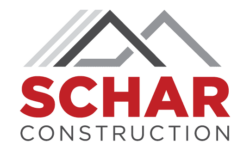According to Zillow, 45% of all homeowners still live in their first home. This number is even higher for those who built their own custom home, and with good reason. Once you’ve built your dream home, you won’t have much incentive to ever sell.
With that said, if you’re seeking to finance custom home construction, it can get complicated and confusing, especially if you’ve just begun the process.
Unlike a traditional mortgage loan or permanent mortgage when you’re buying a home, borrowing money to pay for the construction of a new house involves a shorter term and higher interest. Despite this higher initial investment, building your own home can be cheaper in the long run.
Besides cost concerns, building a custom house allows you to get the exact home you’ve always dreamed of. Let’s walk through a custom home finance guide to help you get started.
What’s a Construction Loan?
A construction loan will generally be for a shorter term, around a year from the start of the loan, in most cases. Home construction loans tend to have a higher interest rate given the short duration of the loan itself. This loan will solely focus on providing the funds needed to construct a new residential property.
It’s important to note that construction needs to coincide with the duration of the loan itself. You need to carry the new home construction out to completion within that year. You’ll also need to seek and obtain a certificate of occupancy from the city you’re building in.
How Does a Construction Loan Work?
A construction loan will typically have a variable rate. This is a rate that fluctuates according to the prime rate. While this rate tends to be higher than the rate you’ll find in a mortgage, it’s also much shorter in duration than a mortgage.
Another important distinction: In a mortgage, the lender would use your home as collateral in case you default on your payments. Construction loans don’t use your home as collateral, so they tend to get viewed as a more significant risk for a lender.
Given that a construction loan has such a short timeline and higher risk, a lender will typically require that you provide them with a timeline of the entire project, a realistic budget, and detailed plans.
Once the lender has approved your application, you’ll typically only need to make payments on the interest and not the principal of the loan. You won’t have to deal with a large lump sum like some other loans might require.
How Much Do Construction Loans Cover?
Here are just a few of the things that a construction loan can cover:
● Cost of land
● Contractor labor costs
● Building materials
● Permits and building fees
Construction loans finance custom home building, but they can also cover other associated costs as well. Even so, most construction loans don’t cover things like home furnishing. They will, however, cover things like landscaping, appliances, and other similar costs.
You should discuss all costs and needs with your lender before signing a contract. Ask them about the interest rates involved, what they’ll include in the loan-to-value calculation for your loan, and any other information that will help you stay informed throughout the process.
What Are the Different Types of Construction Loans?
You might not immediately consider the type of loan you need for home construction, but no single home construction loan exists that will apply in every case. Let’s take a quick look at the five types of construction loans you can apply for:
1. Construction to Permanent Loan
With a construction to permanent loan, you’ll use the money you borrow to pay for the construction process on your home. After construction finishes, this loan will simply transfer into a permanent mortgage.
The main benefit of this type of loan is that you just have a single round of closing costs that you need to pay, which reduces the total number of fees for you overall.
2. Construction-Only Loan
With a construction-only loan, the lender will give you all the funds you need to complete the construction of your new home, but you will need to repay the entire loan once it matures. Given that the loan will typically mature in a year or less, this is the costlier option upfront. Even so, you’ll usually pay less in interest since it won’t turn into a mortgage the way a construction to permanent loan will.
3. Renovation Loan
As you might expect, a renovation loan helps pay for renovating an existing property. Renovation loans come in a variety of types and sizes, and they can come in handy if your new home needs additional work done down the line. As with any other loan, it’s essential that you talk with the lender and check all interest rates and loan terms before signing any contract.
4. Owner-Builder Construction Loan
The owner-builder construction loan only applies in situations where the eventual homeowner is also the sole builder.
5. End Loan
An end loan is another term for the mortgage that a homeowner will have once construction finishes. After the owner has paid off their construction loan, they’ll typically then have an end loan to pay off as well.
How Do You Get a Construction Loan?
In order to qualify for a construction loan, you need to have a low debt-to-income ratio, a good credit score, and a proven minimum income. Once you submit your loan application, HGTV notes that approval could take 45 to 60 days.
At Schar Construction in Eugene, Oregon, We Can Help!
Now that you’ve learned how construction loans finance custom home building and have a plan for how to finance your new custom home, it’s time to look for a qualified and experienced contractor.
Do you need help with the construction process of your new home? We can help. Work with a Eugene home builder that’s served homeowners since 1975. Call us at Schar Construction at 541-204-8406 and get started with your free consultation today.



